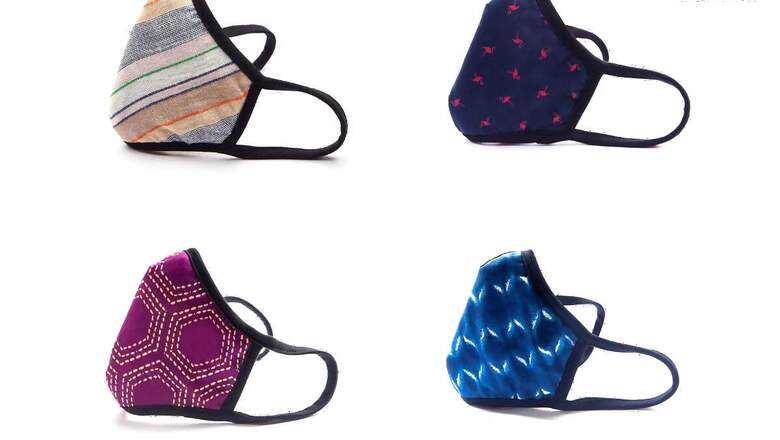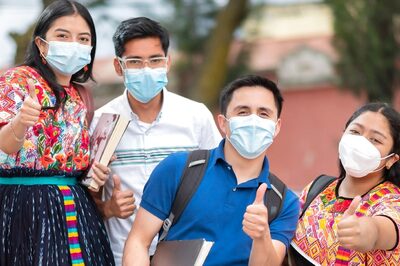
views
It is AQI 999 in most parts of Delhi, on most days. The surrounding areas and in fact most of North India isn’t faring much better right now. The annual gloom of the heavy pollution has landed again on our cities. Various factors, including the changing temperatures, wind speed and wind direction. Add the unchecked stubble burning to that, and what we have outside our windows is a choking grey envelope. We knew air pollution was hurting us in the long term. Now however, there is an added dimension that makes the exposure to air pollution even more dangerous. Scientists say that long term exposure to air pollution increases the risk of dying in case a person catches the coronavirus, or COVID infection. A study published in Cardiovascular Research by the European Society of Cardiology suggests that the more someone has been exposed to air pollution, the lesser their chances of being able to fight the COVID virus. The numbers are worrying. The research says that an estimated 15% of deaths worldwide from COVID-19 could be attributed to long-term exposure to air pollution. In Europe the proportion was about 19%, in North America it was 17%, and in East Asia about 27%.
This makes it even more important for you to wear face masks while stepping outdoors. Not just right now, to protect against COVID, but also to filter the polluted air that you may otherwise breathe if not wearing a mask. Air pollution is a big problem in most Indian cities, particularly North India, something that worsens at this time of the air due to various factors including stubble burning, changes in air pressure, wind direction and humidity levels. Add PM 10, PM 0.3, pollens, dust, allergens, airborne irritants, pathogens and volatile organic compounds, and what you have is a rather dangerous mix of airborne stuff that can enter your lungs and cause serious health issues.
But how can you buy the right mask? Buying an anti-pollution mask isn’t easy at all, particularly now when every other brand is making masks that claim to also protect you against COVID. Do not believe all these claims though—pretty much every mask maker is claiming their masks are the best. But not all may be equally effective in filtering out the bad air before you breathe it. As always, we keep an eye out for a variety of masks and use those to see which ones will be able to provide you the best protection against pollution, how each mask deploys layers that can help catch bacteria and virus and also tick off the comfort aspect. A high-quality mask with a good fit can be useful in keeping pollutants, fumes, PM2.5, PM10 and other airborne illnesses, from your throat and lungs.
The reality is simple, whether you like it or not. High quality masks cost more than the cheap and often dodgy masks that you can now find on pretty much every shopping website or physical stores. And really, you should pay for the added protection. Saving some money now on masks may lead to bigger problems later.
What should you look for in a mask? You would have come across the ratings for masks—N95, N99 and so on. The recent addition are masks that look like surgical masks and also cloth masks. Mind you, the ones that are available in most stores will not do much to protect you against pollution or indeed COVID. It is as good as tearing off a piece of cloth from a t-shirt and wrapping it around your face. It will not do much. The more serious masks meant for high levels of air filtration include multiple layers, including a primary layer that catches the larger particles, another set of layers for smaller particles (sometimes multiple) and even activated carbon.
Then there is the small matter of valves. You may have seen some masks with valves, and some without. For standard daily use and for most users, a no-valve option should suffice. If however you feel difficulty in breathing after a while, that could be due to the moisture build-up inside the mask. A single valve mask would work best for you. And if you intend to use the mask for fitness routine such as jogging or cycling, you will ideally need a dual valve mask because it allows you to breathe better too by increasing the airflow available with every breath.
Read all the Latest News, Breaking News and Coronavirus News here




















Comments
0 comment